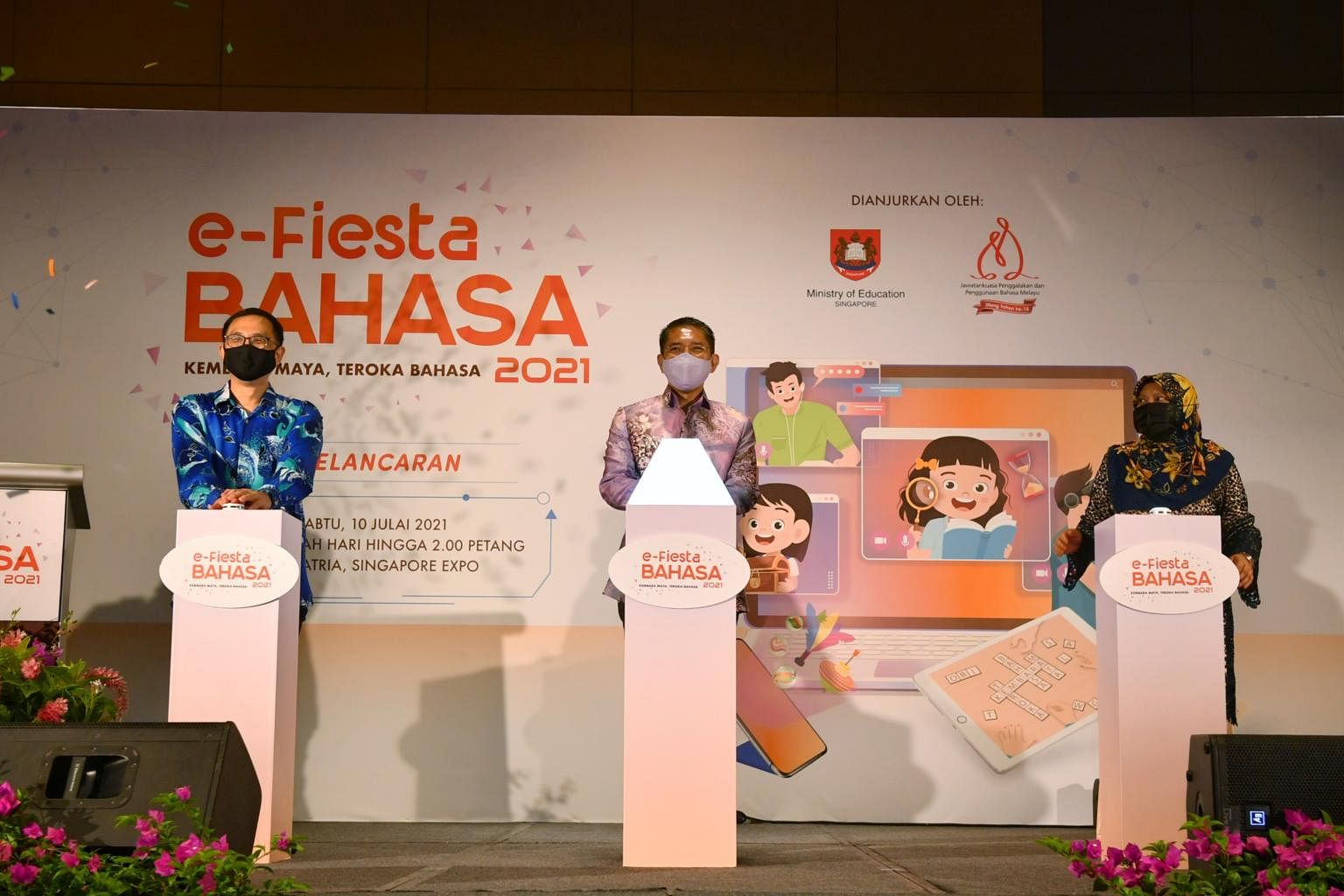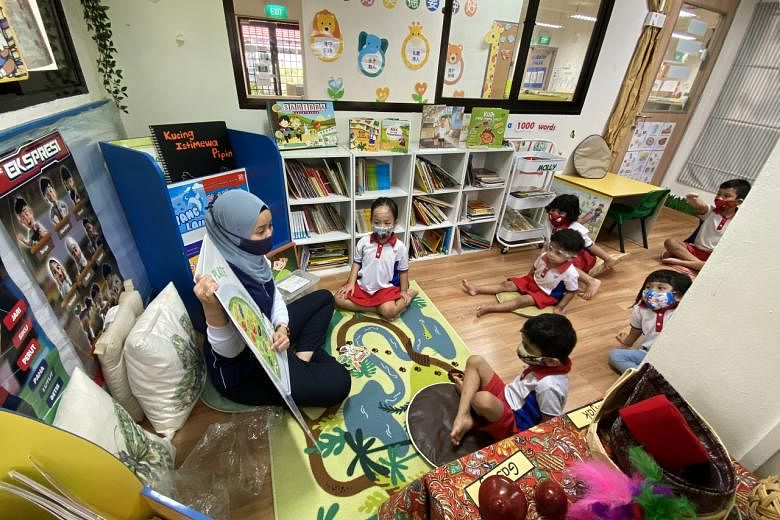SINGAPORE - Efforts will be intensified to improve the bilingual abilities of Malay children while they are still schooling, said Second Minister for Education Maliki Osman on Saturday (July 10).
Dr Maliki said it is worrying that more young Malays in Singapore are not using their mother tongue as their main language of communication, compared with a decade ago.
Last year, about 63 per cent of Malays aged between five and 14 spoke English at home, compared with 25 per cent in 2010, according to the 2020 population census released last month.
"Although we acknowledge the importance of proficiency in English among our children, this trend is worrying from the perspective of challenges that they will face in mastering the Malay language," said Dr Maliki, who is also Second Minister for Foreign Affairs and Minister in the Prime Minister's Office.
He noted that many Malay teachers and academics as well as Malay community leaders in Singapore have expressed their concerns over this trend.
"When you lose a language, you lose a community. We need to address this issue so that the Malays will not lose their identity," he said.
Dr Maliki was speaking at the launch of e-Fiesta Bahasa, a biennial festival organised by the Malay Language Learning and Promotion Committee to promote the Malay language. It will be held until Aug 31.
The committee will continue its efforts to encourage the use and learning of the Malay language, he said.
This includes teaching students about Malay gastronomy, as well as a reading programme for primary school pupils.
The committee will also provide funds to organisations that carry out projects related to Malay language and culture, said Dr Maliki.
More funding will also be provided to the committee from this year until 2025, he added.
At e-Fiesta Bahasa, students, teachers and parents will be able to learn more about the Malay language, as well as Malay literature and culture.

For example, there will be learning booths designed by teachers, as well as pre-recorded sharing sessions by speakers from various fields on topics such as how parents can support their children in learning the Malay language at home.
There will also be virtual tours of the Singapore River and Kampong Glam.
Participants can also take part in an escape room game to learn more about the Malay language.
More information on the festival can be found at e-Fiesta Bahasa's website.


